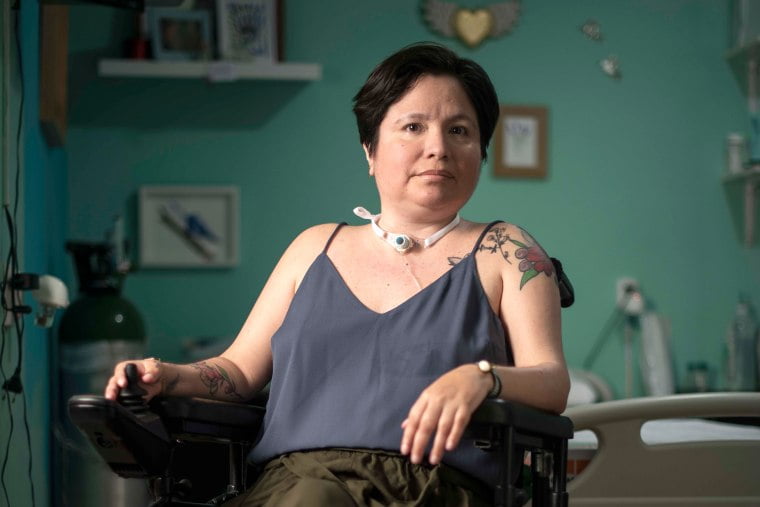Ana Estrada fought successfully in court to obtain the right to decide when to end her life with the help of medical professionals.
In Short
- Ana estrada, a peruvian psychologist, became the first person in peru to be granted the right to euthanasia with medical assistance.
- Her legal battle garnered national attention in a country where euthanasia is prohibited.
- The peru supreme court made an exception for estrada, allowing her autonomy to choose when to end her life with medical aid.
- This decision marks a significant step in the discussion on euthanasia rights in latin america.
TFD – Discover the groundbreaking legal victory of Ana Estrada, the first person in Peru granted the right to die with medical assistance. Follow her courageous journey and the impact on euthanasia rights in Peru and beyond.

LIMA, Perú — The first person in the nation to be granted the right to die with medical assistance was a Peruvian psychologist who was bedridden for several years due to an incurable illness that weakened her muscles, according to her lawyer on Monday. She passed away via euthanasia.
Ana Estrada rose to fame in the conservative nation of Peru, where assisted suicide and euthanasia are forbidden, after fighting for the right to pass away with dignity for many years in the country’s courts.
The country’s Supreme Court made an exception for Estrada in 2022, upholding a lower court’s decision to provide her the autonomy to choose when to end her life and guaranteeing that those who assisted her would face no consequences. Estrada was the first person in Peru to be granted the right to pass away with medical aid.
Ana’s attorney, Josefina Miró Quesada, released a statement saying, “Ana’s struggle for her right to die with dignity has helped to educate thousands of Peruvians about this right and the importance of defending it.” “Her battle went beyond the boundaries of our country.
Estrada, 47, was afflicted with polymyositis, an incurable illness that causes muscle atrophy.
When she was twenty years old, she started using a wheelchair since she had lost the strength to walk, having first displayed the signs as a teenager.
Estrada overcame these challenges to earn a degree in psychology and work as a therapist. She became independent of her parents after earning enough money to purchase her own place.
But by 2017, Estrada’s health had gotten worse to the point where she was unable to move from her bed.
She struggled to breathe, yet she managed to overcome pneumonia. Estrada also utilized transcription software to create a blog called “Ana for a death with dignity,” where she talked about her problems and her choice to seek euthanasia, despite the fact that she was unable to type.
I am no longer free,” she declared in a 2018 Associated Press interview. “I have changed from who I was before.”
Estrada successfully argued for her right to euthanasia through a lawsuit, with the assistance of Peru’s Human Rights Ombudsman. She took part in video conferences from her bed during court hearings.
In 2022, Estrada testified before courts that she treasured life and desired the flexibility to choose when to terminate it rather than passing away right away.
She declared, “When I can no longer bear suffering in life, I want to consent to euthanasia.” “And when I make the decision to say goodbye to my loved ones in a calm and peaceful manner.”
Only a few nations—Canada, Belgium, and Spain—have made euthanasia lawful. Physician-assisted suicide, in which a medical professional gives a terminally sick patient the tools to terminate their life, is legal in some U.S. states, such as Maine and Oregon.
Except for Ecuador, which decriminalized the practice in February, and Colombia, which legalized it in 2015, euthanasia is banned in the majority of Latin American nations.
Conclusion
Ana Estrada’s landmark victory in obtaining euthanasia rights highlights the evolving landscape of medical ethics and individual autonomy. Her courage and determination have paved the way for important conversations about end-of-life choices in Peru and beyond. Let us reflect on the significance of this legal precedent and its impact on future discussions regarding the right to die with dignity.
Connect with us for the Latest, Current, and Breaking News news updates and videos from thefoxdaily.com. The most recent news in the United States, around the world , in business, opinion, technology, politics, and sports, follow Thefoxdaily on X, Facebook, and Instagram .
